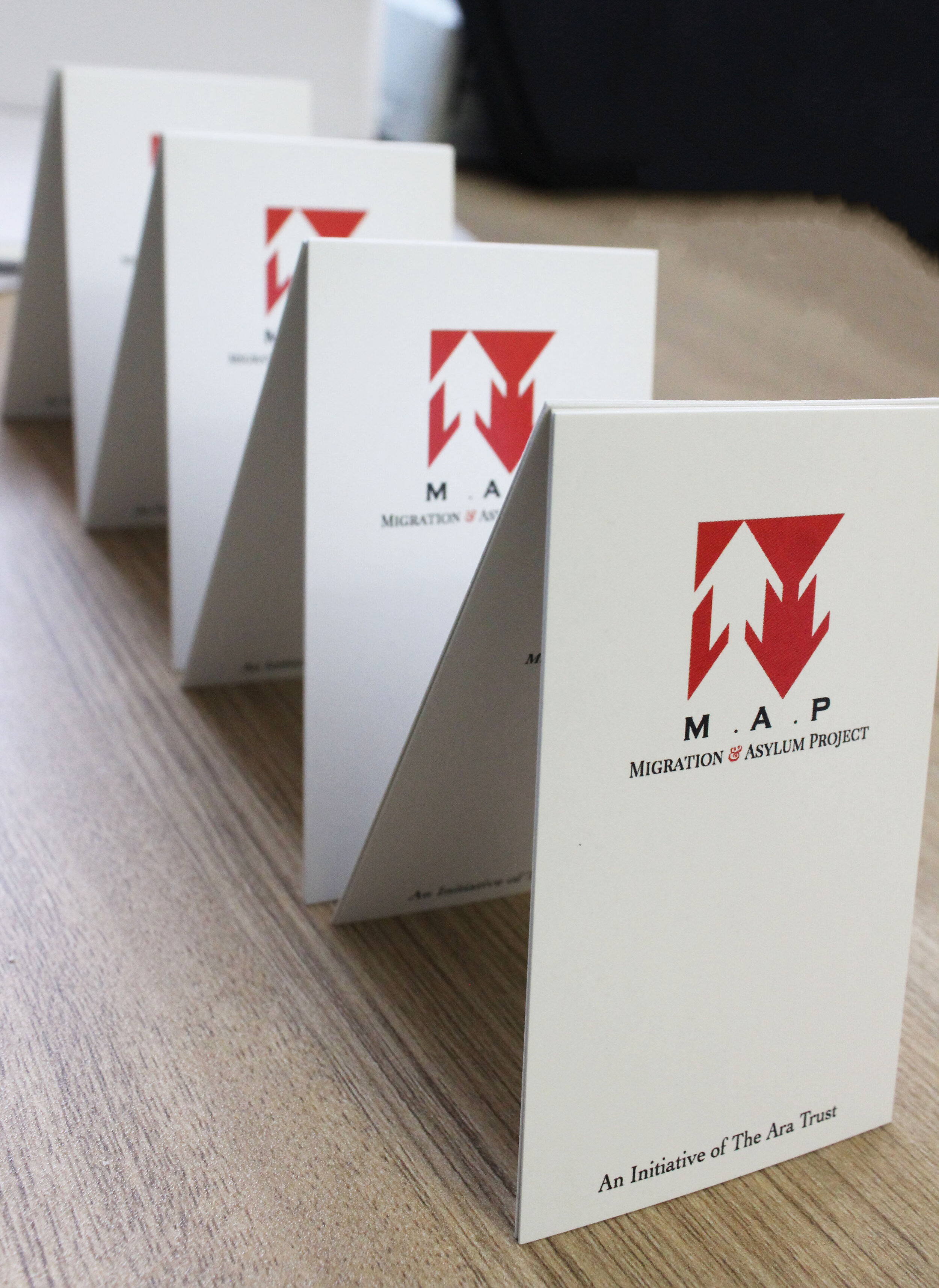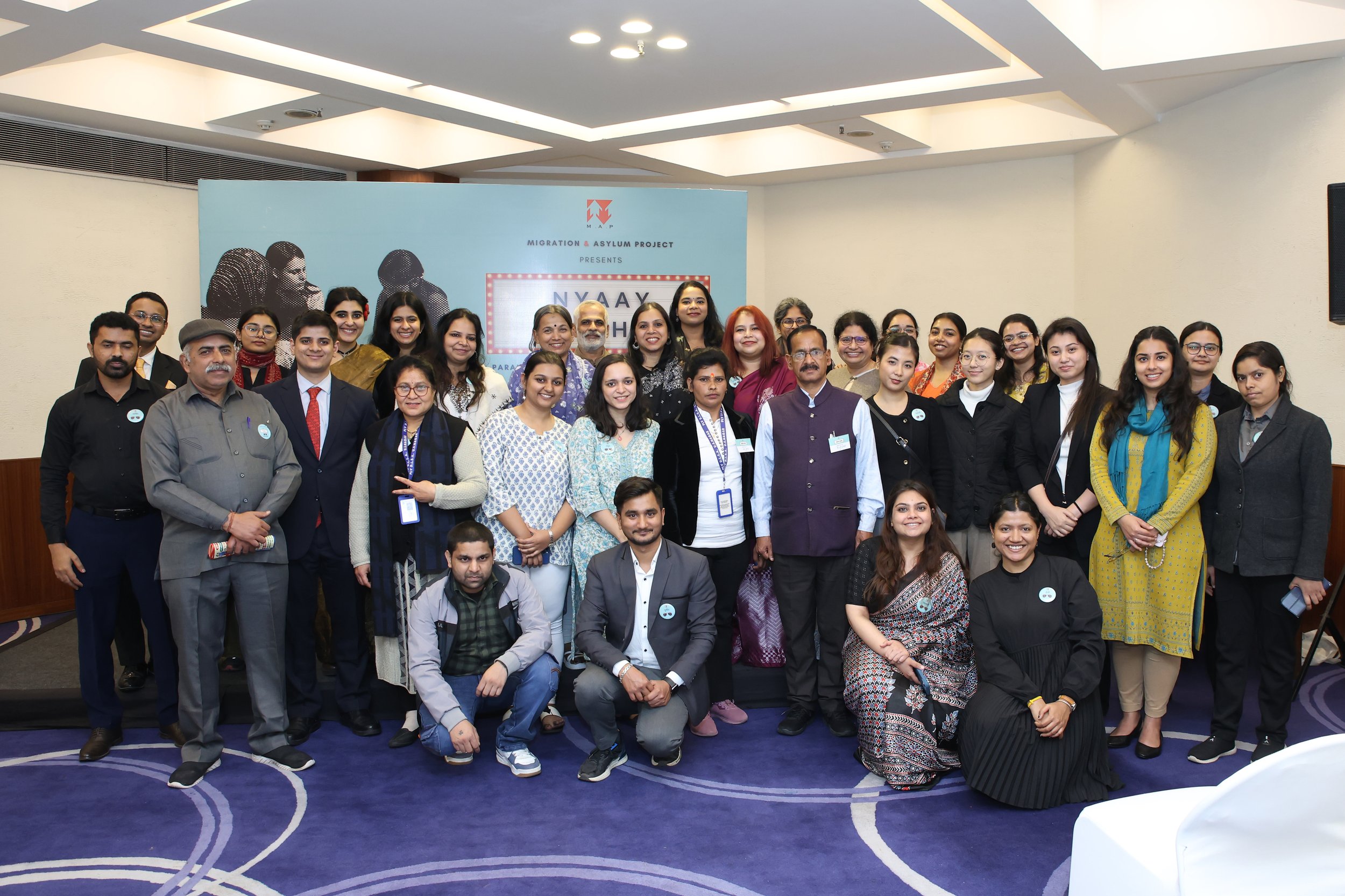
Organisation
Context I History I Objective I Achievements
Started in 2013 by former UN lawyers, the organisation seeks to fuel systemic change in India's approach towards migration and displacement. Its mission is to end the marginalisation of forcibly displaced and migrant communities by enabling them to access mainstream legal systems.
Women-led organisation with all-women management.
It is registered (No. 231661673) under the Foreign Contribution (Regulation) Act 2010 (see Quarterly Filings) and under Sections 12A and 80G of the Income Tax Act, 1961.
Context
Dedicated law centre for the study of migration and refugee movements.
India, which is at the heart of migration in South Asia, is host to millions of internal migrants, refugees and internally displaced persons (IDPs) who have been forced to leave their home due to conflict, persecution, natural disasters, and abject poverty. Often, those displaced, majority of whom are women and children, have limited legal recognition or rights due to absence of domestic legislations or the poor implementation of existing ones.
History
MAP, formerly known as Ara Legal Initiative, was conceived by Roshni Shanker, the organisation’s founder, when she was working as a lawyer with UNHCR’s field offices, assessing asylum claims from conflict-affected countries.
Roshni realised that traditional humanitarian interventions often fail to recognise legal assistance as being fundamental to post-displacement recovery and rehabilitation. Recognising that these gaps would be better addressed at the grassroots by organisations familiar with the local context, Roshni decided to leave the UN and returned to India to set up the first such organisation.
“It was here (UNHCR) that I gained intimate insight into what it was to rebuild one’s life in an alien land without a legal identity”.
Roshni Shanker
Founder & Executive Director
Objective
MAP seeks to strike at the root of a migrant’s vulnerability – her/his lack of agency with respect to their legal status- by making the core Rule of Law principles central to its approach to realising their rights.
Adopt innovative approaches to identify and operationalise programmes to integrate migrants/refugees into existing legal systems and ensure access to universal human rights.

Achievements
One of four winners of the Ockenden International Prize, 2021, awarded to organisations working towards promoting self-reliance amongst refugees.
Pioneered and institutionalised the concept of legal representation in the asylum process at UNHCR India.
Only organisation in South Asia to have a Letter of Understanding with UNHCR; cited as a best practice model by UNHCR HQ.
Provided direct legal assistance to over 4000 asylum-seekers since establishment. 80% of them women and children.
Conducted legal awareness campaigns for over 6000 community members, on their right under Indian laws.
Created a network of over 300 barefoot advocates from the target communities.
Engaged and built capacities of over 200 judicial stakeholders and 300 CSO partners to strengthen the legal response framework.
Developed the first comprehensive legal practitioners' handbook on forced migration and displacement in South Asia.
Drafted a domestic asylum law for a sitting MP, which was the first such bill to be introduced in the Indian Parliament in 2015.
Pioneered a programme to initiate financial and economic inclusion of forced migrants in India.
Produced and curated a successful exhibition using installation art as a means to spread public awareness on the global refugee crisis.



